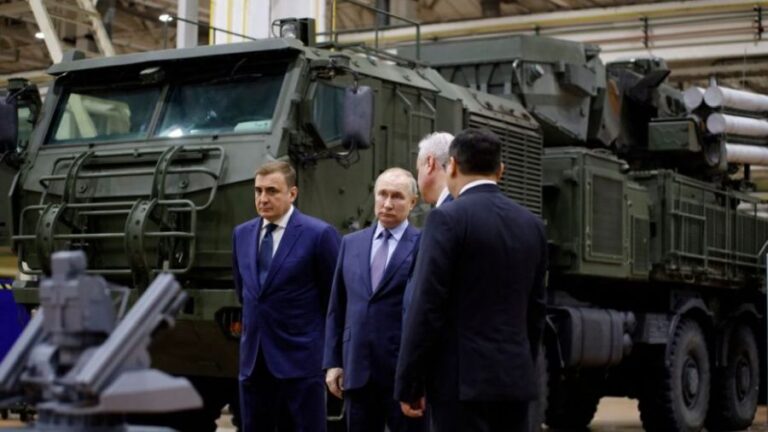Why’s The US Set Its Regime Change Sights On NATO Partner Georgia?
There are two compelling reasons why the US is increasingly unhappy with the ruling Georgian Dream party. These are its close connectivity ties with China and Turkey through the pivotal role that Georgia nowadays plays for their Middle Corridor and its reluctance to further escalate tensions with Russia.
The South Caucasus country of Georgia is in the US’ regime change crosshairs after this weekend’s dramatic events. Former President Saakashvili surprisingly returned to his homeland after fleeing for years to evade corruption charges, which prompted his arrest. The head of the ruling party claimed that he came back in order to carry out a coup ahead of the country’s local elections. He in turn denied the charges and ridiculously alleged that Russian President Putin ordered his arrest. The former leader’s interpretation of events isn’t credible since Georgia is a NATO partner that officially accuses the Eurasian Great Power of occupying its territory in the partially recognized breakaway republics of Abkhazia and South Ossetia after their 2008 war.
This naturally leads one to wonder whether the ruling party’s claims are the ones that are credible. By all indications, they certainly seem to be so, though observers might struggle to understand why the US would want to overthrow this allied government. It doesn’t make sense on the surface. After all, Georgia has very tense relations with Russia and still aspires to join NATO, something that Moscow would regard as crossing one of its red lines. Nevertheless, there are two compelling reasons why the US is increasingly unhappy with the ruling Georgian Dream party. These are its close connectivity ties with China and Turkey through the pivotal role that Georgia nowadays plays for their Middle Corridor and its reluctance to further escalate tensions with Russia.
I elaborated on the first in my November 2019 analysis warning that “The US Is Preparing Another Color Revolution In Georgia Next Year”. Although the timing was off, it can now be seen that the US attempted to replicate the Navalny scenario in that country by presumably ordering its proxy to return home, get arrested, and then use this provocation as a means for putting further pressure on the ruling party. Despite being a close US military and political partner, Georgia understands the importance of improving economic ties with China, Turkey, and the Middle Corridor’s other South Caucasus and Central Asian partners. Its connectivity role remains pivotal due to the stalled progress on the Zangezur Corridor between Armenia and Azerbaijan.
As for the second reason, the US expected Georgia to do more to “contain” Russia. This includes carrying out Ukrainian-like border provocations against it as well as cutting off Russian-Armenian trade that transits through its territory. The ruling party hasn’t done so since it wisely understands how counterproductive that would be for their objective national interests. The US, however, demands full obedience to its demands and doesn’t tolerate any dissent from its vassals. The Georgian Dream’s pragmatic reluctance to totally surrender their national sovereignty to the US like nearby Ukraine has done made American policymakers very angry. They therefore sent Saakashvili there in order to ramp up pressure on them on so-called “democratic” pretexts.
What can be learned from this incident is that the US is becoming increasingly strict with imposing its will on so-called “allies” in the contemporary New Cold War context. It wants to simultaneously pressure them to economically disengage with China in parallel with provoking Russia wherever these dual policies are applicable like in Georgia. It’ll backstab its partners without thinking twice because of its radical zero-sum outlook on International Relations. The US hopes to continue fueling Color Revolution tensions inside those countries that don’t fully comply with its demands until it either succeeds in enforcing its will, provoking civil war, or overthrowing the government.
Georgia’s in a dilemma since compliance with the US’ demands will ultimately lead to regime change against the ruling party. That would in turn endanger the country’s objective national interests with respect to China and Russia. Standing strong in the face of newfound American Hybrid War pressure, however, could potentially result in either targeted or even sectoral sanctions in the coming future. The US might lean on its EU vassals to join in its anti-Georgian campaign to that end. This could further destabilize the country and create more uncertainty. It’s too early to predict what will happen, but all that’s known is that some Georgians are waking up and realizing that the US isn’t the “ally” that they thought but the “frenemy” that they feared Russia was.






